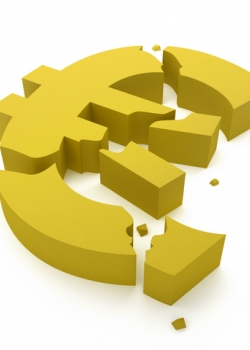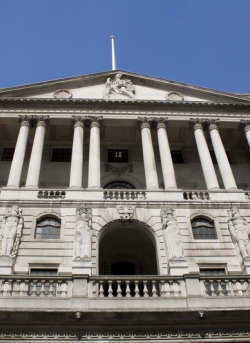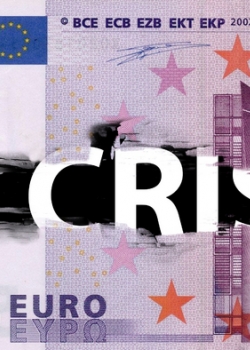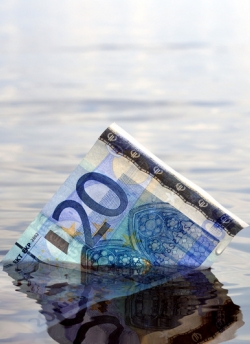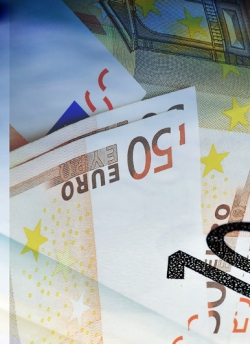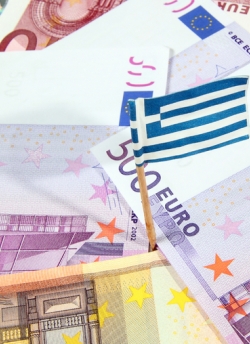Single market, competition & trade
One flew over the EU's mess
19 March 2012
The Wall Street Journal
Welcome to the European Union Home for the Economically Insane. We care for nations dealing with status anxiety, paranoia and low self-esteem, or those who are simply drifting into a senile old age. Please follow me on the guided tour.
Upstairs we have the Acropolis Room. This is where...
Upstairs we have the Acropolis Room. This is where...
The European fallacy of Ireland and the Baltics
27 January 2012
The Daily Telegraph
Another excellent paper by Simon Tilford from the Centre for European Reform.
Eurozone policy-makers – from President Sarkozy and Wolfgang Schäuble to the former President of the ECB, Jean-Claude Trichet – advocate that Italy and Spain should emulate the Baltic states and Ireland. These four countries, they argue, demonstrate...
Eurozone policy-makers – from President Sarkozy and Wolfgang Schäuble to the former President of the ECB, Jean-Claude Trichet – advocate that Italy and Spain should emulate the Baltic states and Ireland. These four countries, they argue, demonstrate...
End of an affair? City of London and EU in bitter acrimony
12 January 2012
Yale Global
The global financial crisis has had a seemingly odd impact on relations between the City of London, the United Kingdom and the European Union. Before the crisis, the dominant assumption in Britain was that what was good for the City, Europe's largest financial center, was good for the UK and...
David Cameron has left the City more, not less, vulnerable to EU law
14 December 2011
The Guardian
There are many puzzles about the British government's tactics at last week's EU summit. One is why it chose to identify the City of London as the "vital national interest" that needed special protection. The City, after all, is the most unpopular "national champion" that the UK possesses. It accounts...
Immediate summit reaction
09 December 2011
CER
This week’s summit will do little to solve the fundamentals of this crisis. What has been agreed is definitely not a fiscal union, there is no agreement to close any of the institutional gaps in the eurozone, such as the lack of any real fiscal union or pan-eurozone backstop to...
Ma l’Europa di Merkozy è già vecchia
08 December 2011
Europaquotidiano
«In questo momento mi pare si possa adattare ai leader europei quello che Churchill usava dire a proposito degli americani: si può sempre essere sicuri che facciano la cosa giusta, una volta che abbiano esaurito tutte le altre possibilità». Charles Grant, direttore del Centre for European Reform di Londra, è...
Single currency doomed in current form
05 December 2011
Channel 4 News
As Nicolas Sarkozy and Angela Merkel discuss the eurozone debt crisis in Paris, economist Simon Tilford tells Channel 4 News the single currency cannot survive in its present form.
The French president and German chancellor are at odds over how to resolve the crisis, with Berlin pushing for tougher sanctions...
The French president and German chancellor are at odds over how to resolve the crisis, with Berlin pushing for tougher sanctions...
Believe it or not, Angela Merkel has a plan to tackle the euro crisis
05 December 2011
The Guardian
While Merkel's vision for a fiscal union may not be the answer to all the eurozone's problems it could be a vital part of any solution.
A new "fiscal union" to underpin the euro is the main topic that Angela Merkel and Nicolas Sarkozy will discuss at their Paris meeting. Merkel...
A new "fiscal union" to underpin the euro is the main topic that Angela Merkel and Nicolas Sarkozy will discuss at their Paris meeting. Merkel...
Is Austerity George saving the UK economy?
30 November 2011
The Times
Britain’s unlikely status as a safe haven is more to do with Europe’s problems than our cuts.George Osborne likes to point at Britain’s record low borrowing costs — the Government can issue ten-year debt at just over 2 per cent — as proof of confidence in his stewardship of the economy.
Los británicos defienden a España e Irlanda: alemanes son también culpables de la crisis
23 November 2011
Invertia
Los expertos del Centre for European Reform (CER), una agrupación británica pro europea, Simon Tilford y Philip Whyte, aseguran en el informe “¿Por qué normas más estrictas ponen en peligro a la UE?” que no toda la culpa de la actual crisis es de los países periféricos, los mal llamados...
Neo-Calvinists and the euro crisis
22 November 2011
The New York Times
Ambrose Evans-Pritchard sends us to a very good essay(pdf) by the Centre for European Reform warning of the consequences of relying on the “North European interpretation” of the eurozone crisis, which essentially sees the crisis as a morality tale, pitting those who sinned against those who stuck to the...
Self-serving myths of Europe's neo-Calvinists
21 November 2011
The Daily Telegraph
If you have half an hour, read this paper (pdf) by Philip Whyte and Simon Tilford for the Centre for European Reform. It is a forensic look into the deeper causes of Europe's crisis and why the reactionary policies being imposed on two thirds of the eurozone by Germany's Wolfgang Schauble and the northern neo-Calvinists – with input from 1930s liquidationists at the ECB – will lead to certain disaster.
Debate: Should we feel sorry for Greece?
07 November 2011
BBC News
Greece is at the eye of the storm gathering over the world economy, and threatening to tear the eurozone apart. But should the rest of us be sorry for Greece, or angry? Here, two experts present opposing arguments for and against sympathy.
AGAINST SYMPATHY - Nicholas Walton, European Council on...
AGAINST SYMPATHY - Nicholas Walton, European Council on...
Interview: La ricetta anticrisi della Germania è illogica
20 October 2011
La Repubblica
Per l'economista del Centre for European Reform l'idea di Berlino che i paesi dell'Europa meridionale debbano "vivere con i propri mezzi" è moralistica e controproducente. Le politiche restrittive peggiorano la situazione. L’aiuto cinese non serve.
Simon Tilford è capo economista del Centre for European Reform. Nei suoi interventi degli ultimi due...
Simon Tilford è capo economista del Centre for European Reform. Nei suoi interventi degli ultimi due...
Eurozone 'outs' must stick up for the single market
12 October 2011
Financial Times
One of the European Union’s greatest achievements has been to scrap non-tariff barriers to trade in goods and services. But the “single market” remains incomplete and faces new threats. The European commissioner responsible for it is blocking further liberalisation of services – even though the Commission as a whole is...
Resuscitating the euro
07 October 2011
The National Interest
For almost two years, the eurozone has been stricken with a potentially fatal malaise. Three crises have intermingled and reinforced each other: Greece, Ireland, Italy, Portugal and Spain face crises of excessive debt (public and private); those same countries suffer from anemic economic growth; and much of the European Union is afflicted with a banking crisis.
Europe doesn’t lack funds, just political will
26 September 2011
Financial Times
The following article was written in response to 'Only the IMF can solve eurozone crisis' by Ragharam Rajan, published in the Financial Times, 26 September 2011.
Het einde van de euro
25 September 2011
NRC Weekend
De beleidsmakers van de eurozone, en vooral de Duitsers en de Nederlanders, zijn niet in staat gebleken uit te stijgen boven hun overmoed en morele betweterij, zodat de eurozone maar heel weinig munitie heeft om de komende financiële storm te trotseren.
Book review - Innovation in Europe lacks 'creative destruction': CER report states
08 September 2011
EurActiv
European innovation policies lack the "creative destruction" widely accepted in the US, raising barriers for businesses seeking to find new ideas and applications, according to a report compiled by the Centre for European Reform, a British think-tank.
In the report, entitled 'Innovation: How Europe can take off',
...
In the report, entitled 'Innovation: How Europe can take off',
...
La via maestra degli eurobond
10 August 2011
Il sole 24 Ore
Le debolezze istituzionali dell'eurozona sono state messe a nudo. Il tentativo di attuare una politica monetaria comune senza un Tesoro comune è fallito.













